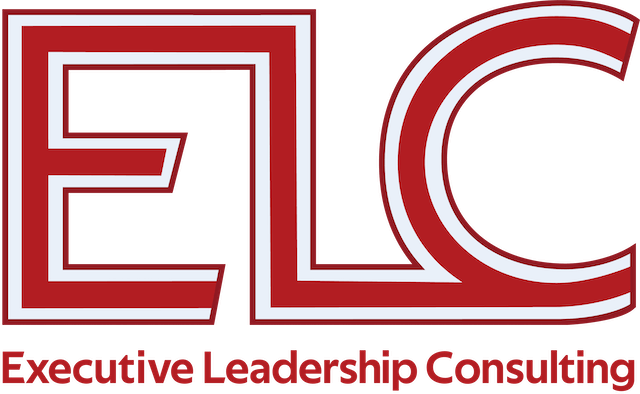You are not an untrustworthy person, but does your team trust you? Just being trustworthy is not enough. Being trustworthy isn’t the same as building trust.
Trust building is the number-one foundation for building a high-performing team. Hundreds of books have been written about how to build trust. Studies have shown that trust and engagement have a significant positive impact on performance.
According to the Integro Trust Model, trust is based on two main areas – Communication and Consistency. Then, within these two foundations are 4 key behaviors that build trust: Acceptance, Openness, Congruence, and Reliability.
So, What Is Trust in the Workplace?
The word, trust, gets thrown around a lot, but what does trust actually mean when it comes to the workplace?
Trust in the workplace is a complicated concept with many interpretations , and its meaning varies from person to person.
Workplace trust is the confidence employees have in their leaders, in each other, and in the organization. This confidence extends to the credibility of the message, the intentions of the communicator, and the ability to follow through on commitments. It’s built on relationships and influences everything from collaboration and creativity to productivity and profitability.
Why Is Trust So Important In Building a Successful Team?
Developing high-trust behaviors is essential to creating a successful team. Low trust not only negatively impacts performance, but it can also lead to a toxic work environment.
A lack of confidence breeds a culture of fear, where individuals are unwilling to take chances or be innovative. Teams without trust will never reach their potential because they’re constantly trying to manage the lack of trust rather than working together rather than developing high-trust behaviors.
On the other hand, trust breeds engagement, which leads to better performance. When trust is high, people are more likely to be engaged in their work, which leads to better performance.
Two Main Areas of Trust
Communication
Communication is one of the first steps in trust building and it’s also the most important. If you can’t communicate effectively, then trust will never develop.
The ability to communicate clearly, concisely, and with empathy is essential to trust building. Leaders need to be able to share their vision and what they expect from their team in a way that is clear and easy to understand. They also need to be able to listen to their team and understand their needs and concerns.
Consistency
Consistency is also a necessity in trust building. It’s what makes trust sustainable. If there is no consistency, then trust will not last.
Consistency requires follow-through. It’s not enough to just say you’re going to do something. It means that your actions match your words and that you follow through on your commitments. People need to be able to trust that you will do what you say you’re going to do.
4 Important Trust Building Behaviors
1. Acceptance
Acceptance starts with respect. When you respect each other, mutual trust can be built on the foundation of respecting others for who they are as a person and as a valued member of the team.
Appreciation and recognition are also part of Acceptance. It’s important to appreciate and recognize good work and the value others provide in their role.
2. Openness
Openness means being open to feedback and freely giving feedback to others. A key to building trust with others is to not only listen to what they have to say but to ask them for their thoughts and opinions. You can ask questions like: “How can I do better?” or “What are your views on this issue?”
It’s also important to share your perspective as well. Be authentic and transparent. Share your opinions and how you see things. As a leader, your team wants to know what’s happening in the organization and why. A lack of transparency can lead to uncertainty, confusion, and disengagement.
3. Congruence
Clear communication is crucial for congruence – being direct, honest, and ethical.
Some people struggle with being straightforward because they do not want to hurt people’s feelings or alienate them. On occasion, they may say things they do not really mean to avoid unpleasantness or conflict. They can also tell a long roundabout story rather than getting straight to the point, especially when there is bad news.
Others think bluntness is the same as straightforwardness and may even pride themselves on their ability to tell it like it is. Yet at times, they might be perceived as being insensitive.
And others push boundaries and bend the truth in pursuit of objectives or personal ego.
All of these behaviors can break trust. To build trust, it’s important to be direct while showing respect for others, tell the truth (even admitting you don’t know the answer), and avoid ethical gray areas.
4. Reliability
The primary reason some people struggle with reliability is that they tend to over-commit themselves. With the best of intentions, they say they will do something, but then get overwhelmed with all the things they have committed to. Typically, these people are enthusiastic, optimistic, and energetic – great for starting new projects but not necessarily finishing them.
People who are reliable take their commitments very seriously and won’t make a commitment until they are sure they can keep it and perform to the best of their ability. Before you make a commitment, ask yourself: “Am I sure I can keep this commitment?”
Reliability also includes always doing your best – seeking excellence. Some leaders work hard to a certain point, then start to just cruise along. Having a growth mindset and striving to improve your performance and the performance of the team goes a long way toward building trust.
Trust Building Action Plan
Are you ready to start the trust-building process? Here’s an action plan to get you started:
-
- Think about a relationship where you would like to improve trust.
- Write down 3 things you respect about them – who they are, what they do, and how they do it.
- Write down what you could tell them to show your respect and appreciation.
- What are some questions you could ask them to better understand their priorities and get their feedback on how you could work together more effectively?
- Have a conversation with the above points.
- Share your priorities and your ideas for how you could work together better.
- Clarify your expectations and ask them what they expect of you.
Creating a bond of trust is easier said than done. It’s worth the effort to build trusting relationships to create a high-performing team.
Get Started With A Trust Assessment!
If you want to take this to the next level, our Trust Inside assessments can help you quantifiably determine the trust levels in your organization. To learn more, set up a time with us to talk more about finding out the strength of trust in your team or organization: https://executiveleader.com/book-call/






